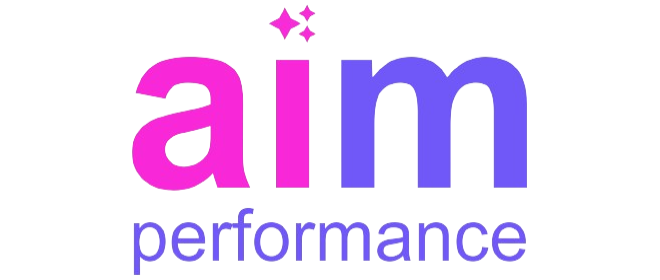Managing overtime effectively can be challenging, especially for blue-collar workforce who often face demanding schedules. Implementing a robust performance management system can provide clear oversight and improve the overall management of overtime. Let’s explore how performance management contributes to managing extra work time effectively for blue-collar workforce, enhancing productivity, well-being, and operational efficiency.
Understanding Overtime Patterns with Performance Management
Performance management systems help companies identify overtime patterns by tracking employee hours, tasks, and productivity. This data offers critical insights into when and why overtime occurs, allowing management to address the root causes effectively.
For blue-collar employees, extended shifts may result from inefficient scheduling or workforce shortages. A performance management system reveals these inefficiencies, helping managers create solutions to optimize work hours. Understanding the trends enables businesses to assign extra shifts more strategically, ensuring that employees are not overwhelmed while still meeting project deadlines.
Balancing Workload and Preventing Burnout
Effective performance management helps balance workloads, minimizing the risk of burnout caused by excessive overtime. By using performance data, managers can monitor individual employee performance, ensuring that extended shifts hours are evenly distributed and not consistently placed on the same employees.
For blue-collar employees, preventing burnout is crucial, as physical labor combined with long hours can lead to fatigue and lower productivity. Implementing a performance management system helps managers stay proactive, allowing them to redistribute work and reduce the frequency of extra shifts, enhancing overall employee well-being.
Enhancing Transparency in Overtime Assignment
One of the biggest challenges in overtime management is ensuring transparency and fairness. Performance management systems allow managers to create a clear, data-driven approach to assigning extra shifts based on objective metrics such as performance, availability, and capability.
For the blue-collar workforce, this transparency is crucial in maintaining trust and morale. Employees are more likely to accept additional hours if they understand how and why the decision was made. By relying on a performance management system, decisions are based on fairness and facts rather than favoritism.
Improving Compliance with Labor Laws
Compliance with labor laws and regulations regarding overtime is essential for all businesses, particularly for those with a large blue-collar workforce. Performance management systems help ensure that businesses adhere to legal requirements, such as extra pay, working hours, and rest periods.
By integrating labor law compliance into performance management, companies reduce the risk of legal issues or penalties. Automated systems provide real-time alerts when employees are nearing their legal work limits, ensuring that businesses maintain a compliant and ethical work environment.
Optimizing Overtime Costs
Additional work hours can be costly for businesses, but performance management can help mitigate unnecessary expenses by identifying areas where extra time could be avoided. By tracking employee performance and productivity, managers can spot inefficiencies that lead to increased hours.
For example, if a particular task consistently requires extra hours, performance data can help determine whether it is due to a lack of resources, training gaps, or inefficient workflows. Addressing these issues can reduce the need for overtime, saving money and increasing productivity in the long run.
Boosting Productivity During Overtime Hours
Another benefit of performance management is the ability to monitor and boost productivity during overtime hours. By tracking employee performance, managers can identify who performs well under extended hours and who may struggle.
Blue-collar employees often face physical and mental fatigue during long shifts. A performance management system allows managers to assign tasks more effectively based on real-time data, ensuring that employees remain productive, and tasks are completed efficiently, even during extra work hours.
Fostering a Healthy Work-Life Balance
Performance management also helps create a healthier work-life balance for blue-collar employees by preventing excessive overtime. With clear performance data, managers can avoid overloading employees with too many extra hours, ensuring that they have adequate time to rest and recharge.
A well-balanced work-life environment is critical for employee satisfaction and retention. By using performance management to better control extended hours, businesses can enhance job satisfaction while still meeting operational demands.
Aligning Extra Work with Business Objectives
Performance management helps businesses align overtime assignments with their broader operational goals. By tracking progress on specific tasks and projects, managers can allocate overtime hours where they are most needed, ensuring that extra time is spent on high-priority work.
For blue-collar employees, this means that extra assignments are purposeful, with clear objectives that benefit both the employee and the company. Aligning additional hours with business goals ensures that the extra time contributes meaningfully to the overall success of the company.
Encouraging Employees Feedback on Extended Shifts
Lastly, performance management fosters communication between employees and management. Through regular performance reviews and feedback loops, blue-collar employees could voice concerns or suggestions about overtime management.
Encouraging this dialogue allows managers to adjust strategies based on employee feedback, creating a more cooperative and efficient approach to managing longer shifts. Employees are more likely to engage positively with additional assignments when they feel heard and involved in the decision-making process.
Conclusion
In conclusion, performance management plays a crucial role in helping businesses manage overtime more effectively for their blue-collar workforce. From understanding overtime patterns to enhancing productivity and compliance, the insights gained through performance data enable businesses to take a proactive approach to managing additional time as companies continue to leverage these systems, they will find that performance management not only improves extended hour efficiency but also enhances employee well-being and operational success.










